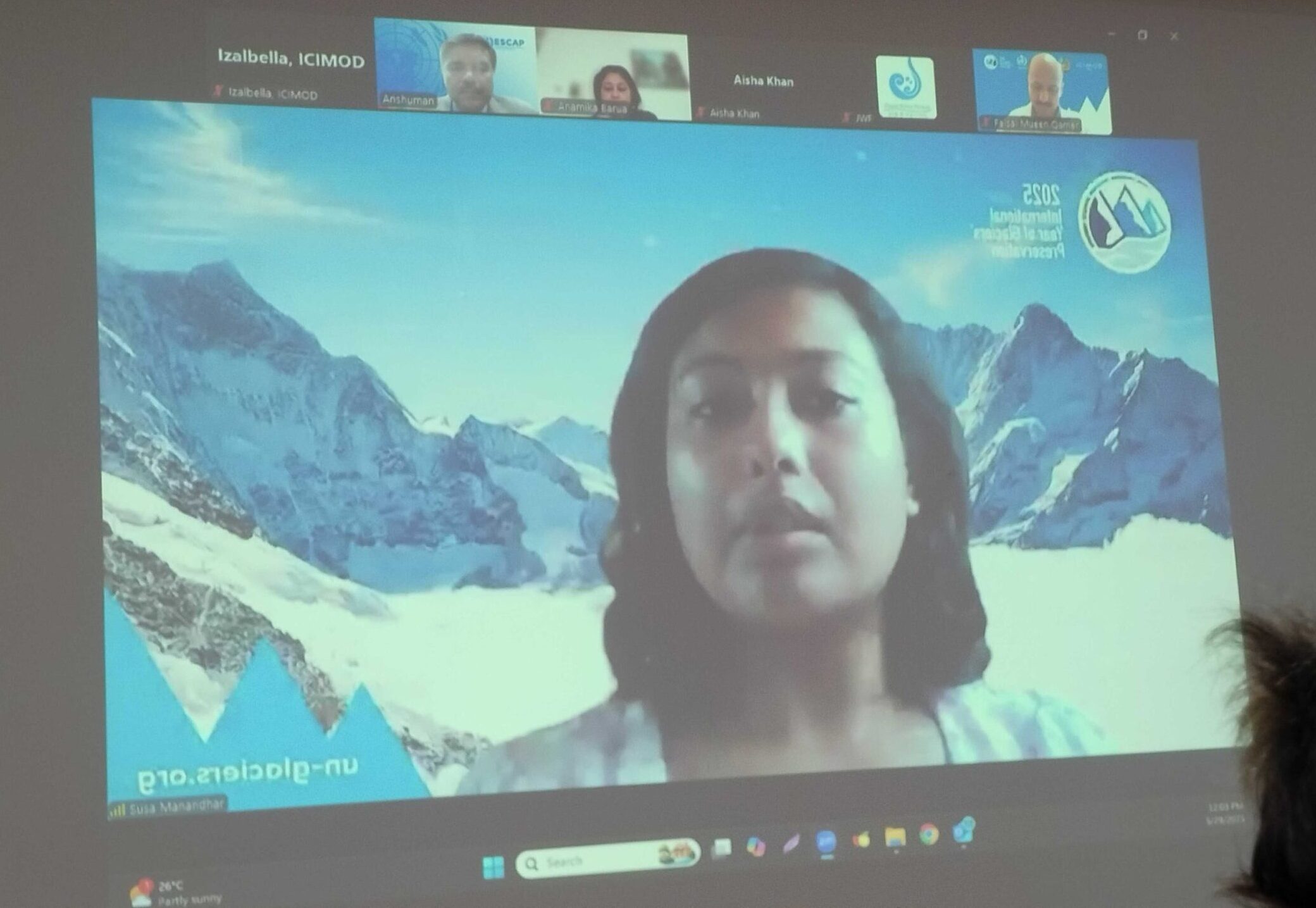The Small Earth Nepal (SEN) in collaboration with the International Centre for Integrated Mountain Development (ICIMOD) celebrated the International Day for Biological Diversity-2018 by hosting a one-day graduates workshop- “Graduates Hive: Synergizing Knowledge on Biodiversity” with the theme for this year “Celebrating 25 years of Action on Biodiversity” on 22nd May at the ICIMOD Knowledge Park, Godawari, Lalitpur. Altogether, 30 participants had participated in the workshop.
The workshop constituted of three sessions viz Session 1: Paper presentation, Session 2: Story telling “exploring the horizon of biodiversity” and Session 3: Sharing knowledge on research tools and techniques.
The first session started off with paper presentations by the graduate students. Altogether, five papers were presented. The presentations were delivered on “Assessment of habitat by snow leopard and understanding of community-based snow leopard conservation in Eastern Nepal” by Mr. Sandesh Lamichhane from Kathmandu Forestry College, “Habitat analysis of Chinese Pangolin (Manis pentadactyl) in Manthali Community Forest Suryavinayak” by Mr. Mahendra Prasad Uprety from Khowpa College, “Status and distribution of anthropogenic pressure and tree species diversity in the Kailash Buffer Zone Community Forest, Bardiya National Park” by Ms. Shrijana Poudel from Kathmandu Forestry College, “Human-snow leopard conflict in Sahagun Rural Municipality, Manaslu Conservation Area” by Ms. Loonibha Manandhar and “Distribution of red panda in Jajarkot, Mid-Western Nepal” by Mr. Badri Baral from Nepal Environmental Research Institute (NERI). It was evident from their hard work and dedication towards their work that young researchers were very much enthusiastic and concerned about the conservation of the biodiversity and their habitat. Experts from the field of biodiversity who were also the storytellers for the program, appreciated their hard work and gave their valuable inputs.
The second session of the workshop comprised of sharing the experiences, hardships, and the endeavors of prominent conservation leaders. Mr. Prasanna Yonzan, Chief Executive Officer of Wildlife Conservation Nepal (WCN) is a pioneer conservationist with over three decades of experience in conservation with great commitment against trade and poaching of wildlife and development of landscape. He stressed “Devotion of work is a must rather than a money”. He further added “stewardship” is a need of today for an effective conservation and young researchers and scientists have played a tremendous role in the conservation of biodiversity in Nepal.
Mr. Yadav Ghimire, Friends of Nature (FON) Nepal, who has played an instrumental role in the conservation of clouded leopard in Nepal, shared his stories. Born in Nepal, raised in Sikkim of India, graduated in physics, Mr. Ghimire, turned out to be a conservationist in the later phase of his life. Among many, he takes Mr. Raju Acharya as his inspiration. He got an opportunity to work for the IUCN Red Data List for Clouded Leopard from Nepal. He has travelled in many remote places in Nepal for the study of small carnivores and small felids throughout the country. “My hardship is overcome by my passion”, he says.
Ms. Tulshi Laxmi Suwal, an emerging small mammal conservationist, shared her life struggle and how she followed her dreams to be a person who she is today. She is now the President of Small Mammals Conservation and Research Foundation (SMCRF), a youth-led organization working particularly on research and conservation of small mammals. Ms. Suwal, , who was once crippled by the financial crisis even to pay her tuition fees and had faced objections of studying wildlife being a girl child is now a role model for many young women in conservation and her works in pangolin are of noteworthy. Being the first graduate from Central Department of Zoology to study pangolin species and the first person in Nepal to observe pangolin with its baby during the fieldwork, she is thankful to her family and her friends for their continued support and she is committed to take SMCRF to a next level.
The third session was focused on the application of efficient tools for data collection: Kobo toolbox and Open Data Kit (ODK) and Google Earth Engine (GEE) for geospatial data analysis. Mr. Kabiraj Khatiwada and Ms. Susmina Gajurel, both from SEN gave presentations to promulgate the participants regarding the new technologies and tools to make the data collection process easier and more convenient. The Kobo toolbox and ODK, efficient tools for data collection in the field and the application of GEE in biodiversity monitoring and assessment including forest fire, eco-region zonation, land cover change, biomass monitoring etc. were the highlights of the session.
Lastly, the senior researchers were felicitated by Ms. Suchita Shrestha, the vice-president of SEN. She thanked them for taking out their valuable time for the event and inspiring young generation. She also thanked the presenters, participants and the organizing committee for the meaningful event.




